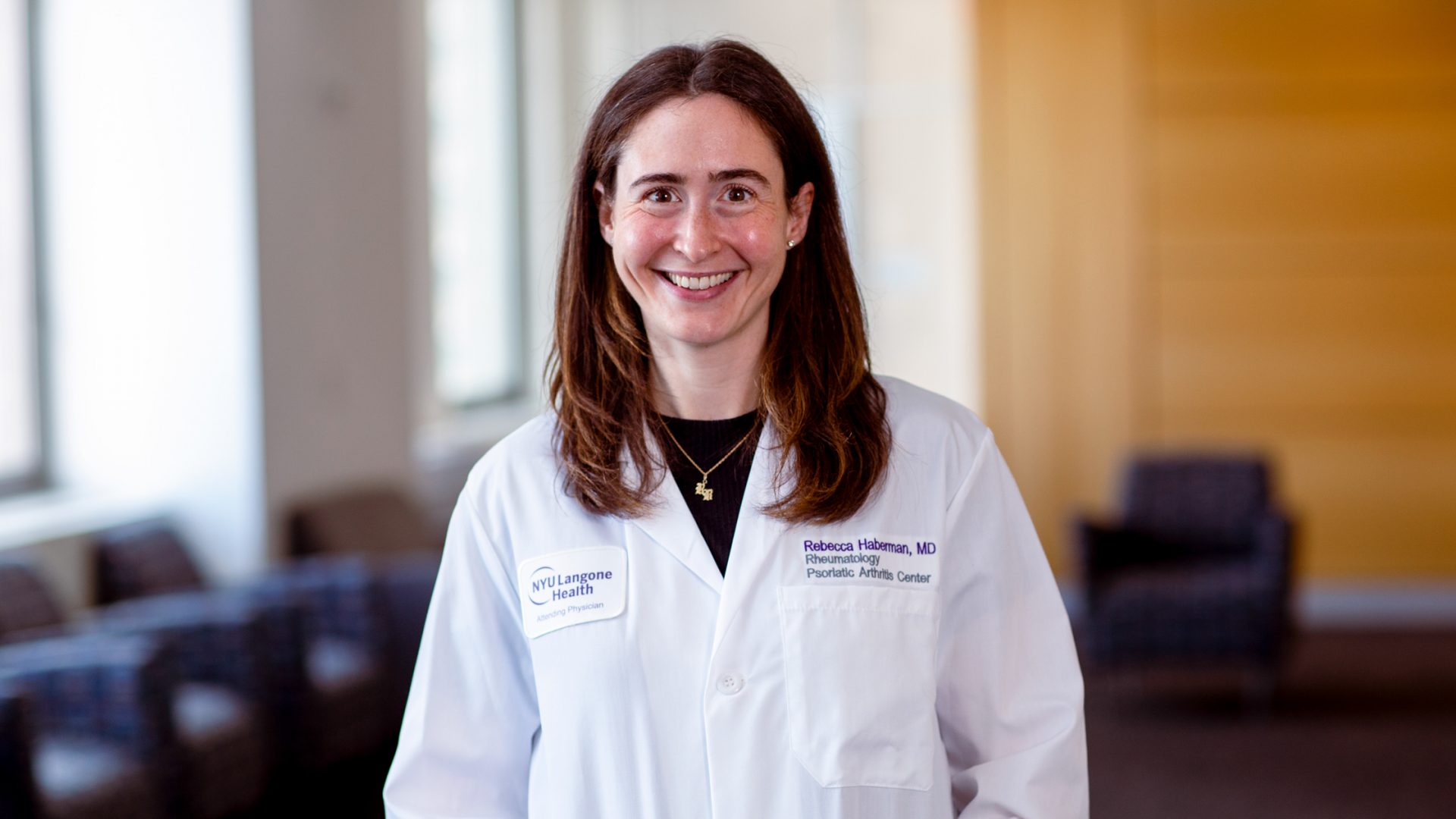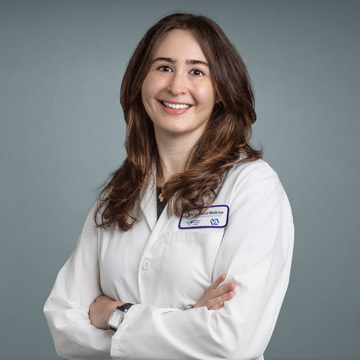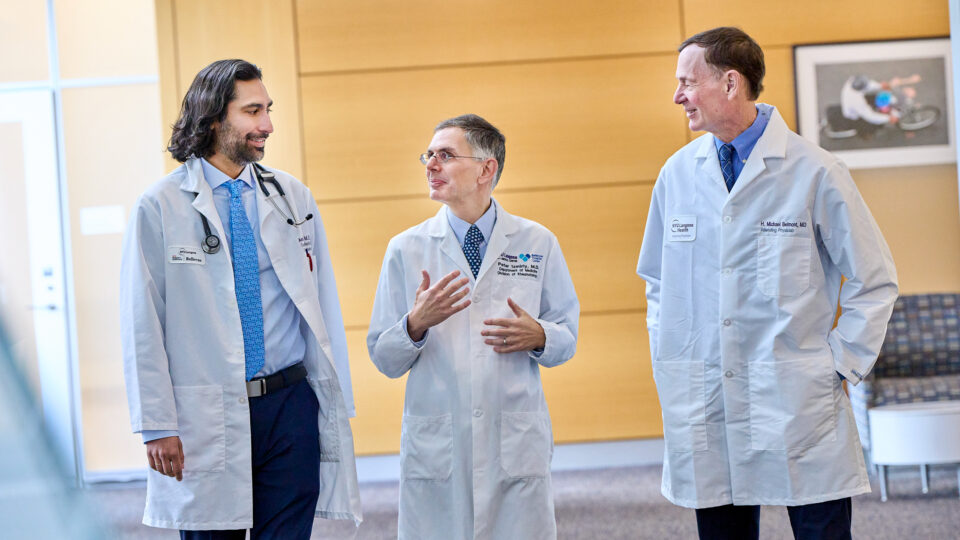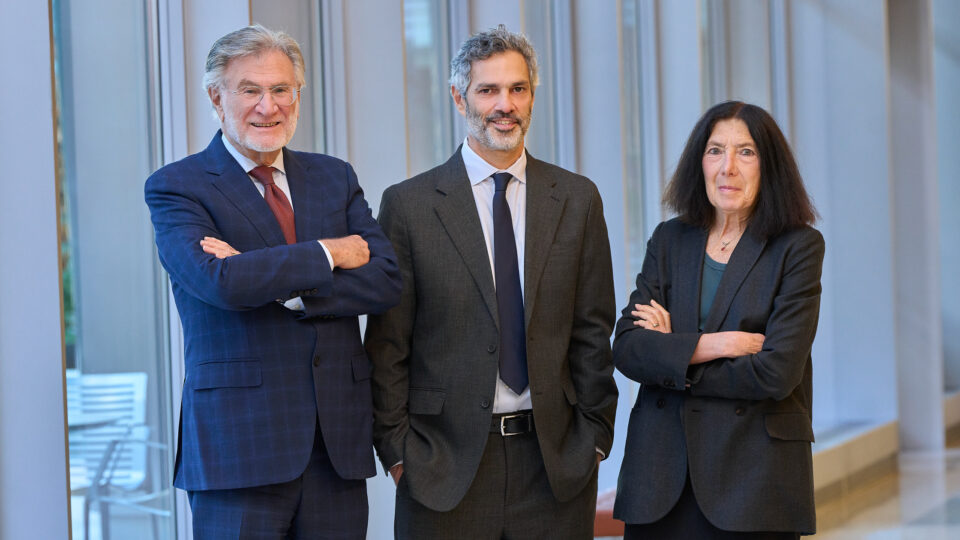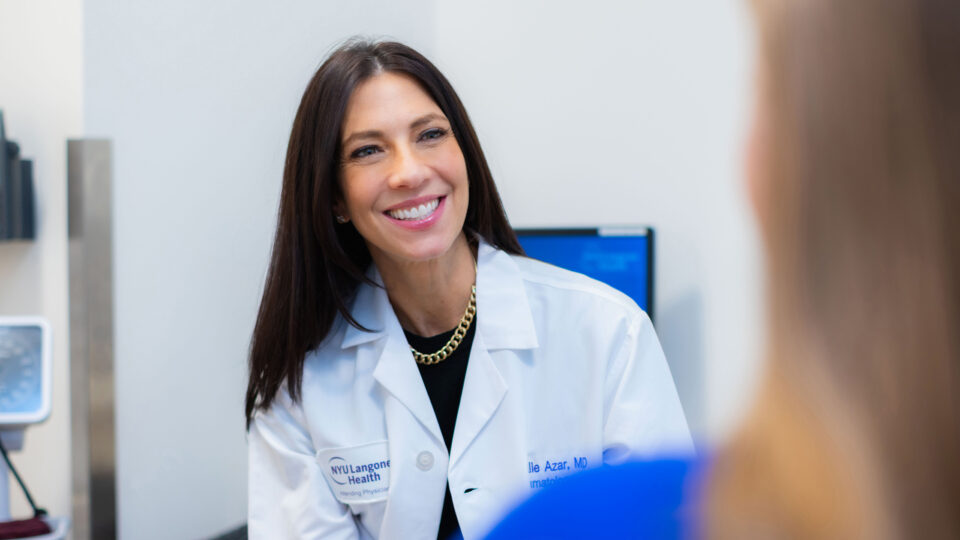NYU Grossman School of Medicine’s Division of Rheumatology has been awarded the prestigious T32 training program grant from the National Institutes of Health (NIH) multiple times. The funding expands the division’s ability to train and educate the next generation of research leaders in rheumatology.
Here, Rebecca Haberman, MD, assistant director of NYU Langone Health’s Psoriatic Arthritis Center and former recipient of the T32 grant, discusses how the funding provided her unique training opportunities and financial resources for the acquisition and development of research skills. She also highlights some of her ongoing multidisciplinary research and clinical care initiatives, fostering new innovations in the field of rheumatology.
Equipping New Researchers with Knowledge and Skills
Physician Focus: Dr. Haberman, you’ve been a recipient of the T32 training grant. How did it help you as a researcher?
Dr. Haberman: Overall, the grant funding has allowed me to acquire the necessary knowledge and skills that will help me to develop my own independent research program—something I’ve always wanted to do.
“As the field continues to advance, it is important to focus on how we translate discoveries made in the lab into the office, to directly benefit our patients.”
Rebecca Haberman, MD
As a fellow in the Division of Rheumatology, I worked under the mentorship of Jose U. Scher, MD, director of the Psoriatic Arthritis Center, as well as other members of NYU Grossman School of Medicine’s Department of Population Health, which fostered my interest in psoriatic arthritis and outcomes-based research. As the field continues to advance, it is important to focus on how we translate discoveries made in the lab into the office, to directly benefit our patients.
Unique and Specialized Training Opportunities
Physician Focus: How did the funding prepare you for a career in outcomes-based rheumatology research?
Dr. Haberman: Along with the funding came unique training opportunities. For example, I was able to obtain an MS in Clinical Investigation (MSCI) at NYU Grossman School of Medicine’s Clinical and Translational Science Institute, which allowed me to become more efficient and productive in my research.
With respect to cross-discipline collaboration, opportunities were readily available in my training program. Strong mentorship from investigators in other departments provided me with a solid foundation on which to analyze data and design new studies—at the heart of research education for clinical trainees is to increase their exposure to different scientific disciplines.
Growing a Research Program
Physician Focus: What are a few notable projects already underway or in planning through your research program?
Dr. Haberman: My funding from the T32 training grant ended in 2021. Since then, I’ve secured additional funding from the Rheumatology Research Foundation and the National Psoriasis Foundation to continue my research in psoriatic arthritis.
In collaboration with Dr. Scher, I’m leading a major multicenter, interventional, preventive study, Preventing Arthritis in a Multicenter Psoriasis At-Risk Population (PAMPA). The randomized trial across five North American medical centers has begun recruiting patients with psoriasis.
The purpose of this study is to determine if the drug guselkumab can prevent progression of psoriasis to psoriatic arthritis when compared to placebo and to other standard of care treatment in patients with high-risk psoriasis. In addition to providing critical insights into the progression of psoriatic disease, this study could change the standard of care for patients.
Physician Focus: Looking ahead, what other projects are you excited about?
Dr. Haberman: I’m excited about a new project investigating changes in brain connectivity in individuals with psoriasis and psoriatic arthritis, as well as the risk and effects of depression on pain in psoriatic disease. We are currently seeking funding for this and other related investigations.


